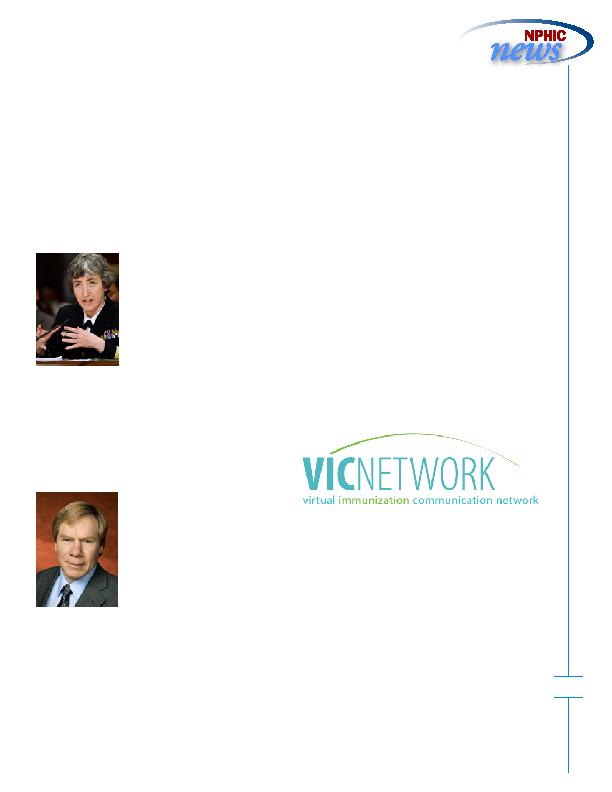
Communications Network (VICNetwork) webinar vaccine
acceptance and hesitancy was particularly important when the
opening remarks were made by Dr. Anne Schuchat. As director of
CDC's National Center for Immunization and Respiratory Diseases
(NCIRD) and an assistant surgeon general, Dr. Schuchat is often
quoted in the media.
vaccination coverage among infants in
the U.S. is high, the continued success
of immunization efforts depends on
parents' acceptance of these vaccines for
their children. She emphasized that the
more we understand about hesitancy
and acceptance among parents, the
information about past and present CDC work to learn more about
hesitancy and acceptance and translate that knowledge into
improved communication.
of the topic, including the cognitive
factors that influence acceptance.
Nowak noted that vaccine acceptance
is influenced by a number of factors,
including having few or no doubts about
vaccine safety and having confidence in
health care providers. Nowak is professor
of Advertising and Public Relations
Communication at the University of Georgia. Before joining Grady
College, Nowak worked for 14 years at CDC.
considerable research that has been done with health care
providers and parents on hesitancy and acceptance. The research
has led to a better understanding of how opinions are formed
decisions.
Communication Team, finished by explaining how the research
findings have influenced the development of new communication
materials for providers and parents. She showed specific examples
of new materials that are now available on the CDC website, at
numerous NPHIC members.
the California Immunization Coalition, led by Executive Director
Catherine Martin. The network includes more than 3,000 public
health communicators, health educators, immunization coalition
members, doctors, nurses and others who are all interested in
doing a better job of explaining why immunizations matter.
28, at 2 p.m. Eastern, the next VICNetwork webinar will involve
a discussion of issues surrounding the HPV vaccine that have led
to its underutilization. Communications research with parents
and providers will shed light on the opportunities to improve
uptake. Practical tips for strongly recommending the vaccine will
be discussed, along with resources to help parents accept the
recommendation for same-day vaccination.